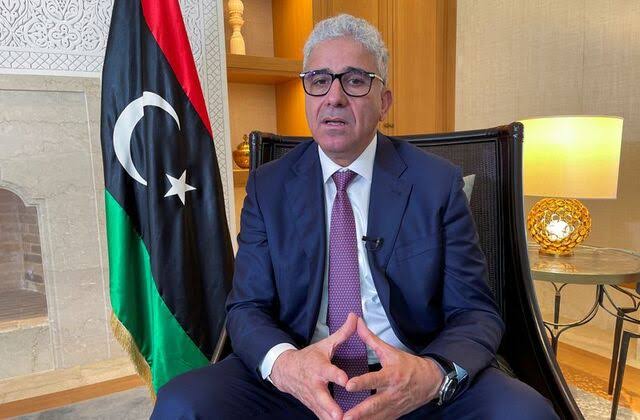Libya’s Fathi Bashagha, who was appointed prime minister by the eastern-based parliament, expects to take over government in Tripoli without using force.
Bashagha told Reuters, amid a weeks-long standoff between rival factions, said, “God willing the government will be able to carry out its duties in Tripoli in the coming days.
“We have direct contacts with the Libyan west, with Tripoli, the political elite and the leaders of the battalions and some societal figures.’’
Abdulhamid al-Dbeibah, who was made interim prime minister in an UN-backed process, has refused to cede power to Bashagha after a planned election collapsed in December and remained ensconced in the capital, backed by some armed groups.
After the election process fell apart, the parliament said Dbeibah’s government had expired and selected Bashagha to head a new transitional period towards elections in 2023, a move rejected by other factions.
Bashagha tried to enter Tripoli three weeks with a large armed convoy but turned back as forces aligned with Dbeibah blocked the roads into the capital.
Since then, Libya has been stuck in political deadlock, with both governments saying they are legitimate, fears of new fighting or a territorial division between them, and the UN and Western countries trying to revive the failed election.
Bashagha has repeatedly said he would not use force to enter the capital and told Reuters “our arrival in Tripoli and the government headquarters will be completely peaceful”.
He said there were indications from inside Libya and internationally that he would be able to take over in Tripoli and that Dbeibah’s government was not able to operate outside the city.
A spokesman for Dbeibah’s government did not immediately respond to a request for comment.
Libya has had little peace since a 2011 NATO-backed uprising against Muammar Gaddafi and split in 2014 between warring eastern and western factions that backed rival governments.
Bashagha was interior minister in the then internationally recognised government in Tripoli, and played a role in fending off an assault by the eastern parliament-backed forces under Khalifa Haftar from 2019-20.
After Haftar’s attempt to seize Tripoli failed, the UN-supported a peace process that included a military ceasefire, steps to integrate Libya’s divided economy and the installation of Dbeibah’s government to unify state institutions.
The UN also oversaw the election in December.
